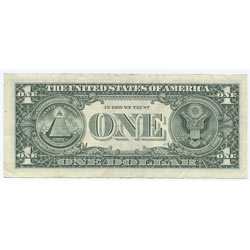Discount Dental Insurance -
A Better Deal Than
Low Income Insurance?
Discount dental insurance is a possible alternative that has several advantages over normal dental insurance. If you're on a low income, dental insurance is probably on the back burner right now.
But you don't want to take it off the stove completely. So you need an alternative. Discount dental insurance is one way of only paying for the treatment you actually get. And of course, at a discount! That's why it's called discount dental insurance.
If you want a low joining fee and a simple arrangement, discount dental insurance may be of interest to you!
But first, let's take a quick look at conventional dental insurance.
For most folk, especially if you're on a low income, dental insurance premiums can look expensive. There's no doubt, cost is an important issue.
But it is not just the monthly premiums you pay. You also have to think about deductibles, annual limits, co-pays, and co-insurance. These things can all add up, leaving you with dental costs you weren't expecting.
How could that happen? You pay your monthly premiums, so why aren't you fully covered for all your dental treatment?
Discount Dental Insurance
Well, the first problem is called "deductibles".
Deductibles. This is like the "excess" payment you have with car insurance. For example, if you get some small damage to your car, the insurance usually doesn't pay the first (say) $500. So anything under $500 you have to pay yourself.
With dental insurance it's similar. If you go along for your first check-up and cleaning after signing up with your new dental insurance, you will have to pay the first bit yourself. The exact amount depends on the policy you picked.
One important difference over car insurance is that the deductible amount is fixed for one year. So if you have paid an amount of money equal to the deductible amount on some dental treatment over (for example) 3 months, any dental treatment after that will be covered by your insurance.
 is your insurance fund a piggy bank?
is your insurance fund a piggy bank?But 12 months after starting your policy, the deductible is re-set to zero again, and you have to pay that amount out of your own pocket once more before the insurance starts to work.
When looking for a dental insurance plan, you will need to figure out what you can afford to pay each year as a deductible out of your own pocket. This is in addition to the monthly premiums!
But there's an added complication. If you decide to go for a policy with a bigger deductible, your monthly premiums will be less. The opposite is also true - if you sign up for a lower deductible, then your monthly premiums will be higher.
You might be tempted to try to save money by going for a policy with a low monthly premium. But if you end up needing dental treatment, your deductible amount will be higher, and you could end up paying a significant amount out of your own pocket, even though you are "insured" !
So you need to calculate carefully how much you want to afford as a deductible, because you have to pay that deducible yourself before the insurance starts to cover anything.
Next problem is co-insurance. This is where you and the insurance company share the costs of your dental treatment.
You may be thinking that after you have paid your deductible, your insurance kicks in, and you're home and dry. But it doesn't work like that. Dental insurance does NOT pay 100% from there on in. Normally, a dental plan will cover around 50% to 75% of the costs remaining after you have paid the deductible amount.
In other words, after paying the deductible up front, any other dental bills in that year will be split between you and the insurance company.
Are you starting to get fed up with the idea of traditional dental insurance yet? !
The third problem is annual limits.
Annual limit. This is where the insurance company sets a limit on the total amount it will actually pay out in a 12 month period. If you reach the annual limit for your insurance after, say, 10 months, then you will have to pay 100% of any dental bills over the remaining 2 months. Then the annual limit resets and starts again for the next 12 months.
This could leave you out in the cold if you have a dental emergency after reaching your annual limit. If you needed some extensive treatment such as a root canal and a crown, you're faced with covering all that cost yourself.
 one dollar
one dollarA slightly different insurance arrangement might involve co-pays.
Some dental insurance policies have "co-pays" - this is where you pay a fixed amount for a certain procedure, and the insurance pays the rest, whatever that might be. For example, you might pay $30 towards a check-up. This is the fixed amount set out in your insurance policy. The insurance will pay the rest. But you only benefit from the co-pay arrangement after you have paid the deductible amount specified in your policy.
Discount Dental Insurance
There are also discount dental insurance plans. Discount dental plans have several advantages over conventional dental insurance policies.
Discount dental insurance is actually not insurance. It simply provides a substantial discount for dental treatment for members.
Here are the advantages of discount dental insurance:
- They do not have waiting periods. Your cover starts immediately.
- There are no deductibles. You don't have to spend a large amount up-front before the benefits start.
- Discount dental insurance does not have any annual limits. You could have as much treatment as you want, the discount rates still apply.
- They are simpler to use - no forms to fill in, no wrangling over billing details.
Discounts are based on a set fee schedule, so costs are predictable. Discount plans are also flexible, since you can choose a plan that covers the procedures you think you might need.
Some discount dental plans also cover cosmetic procedures, whereas quite a few normal dental insurance policies draw the line at this point.
MY RECOMMENDATION?
If you want a low joining fee and a simple arrangement, discount dental insurance may be of interest to you. Check it all out at :DentalPlans.



